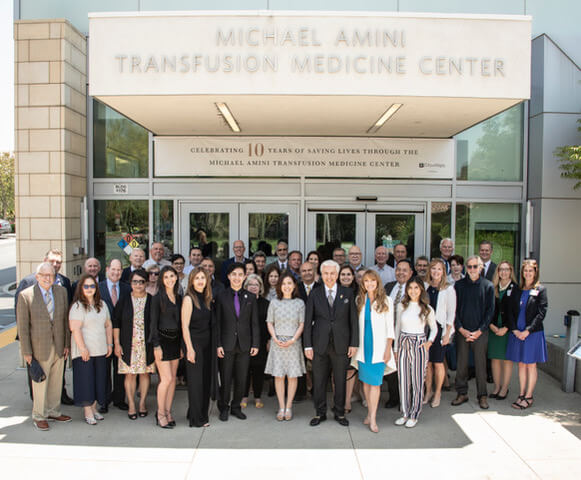YouTube Updates Copyright Infringement Claim System to Better Protect Creators
Takeaway: YouTube now requires more information for copyright claims and provides creator with multiple options to address infringing material without taking down a video.

YouTube has announced that when using their claim system, copyright owners will now have to provide exact timestamps corresponding to when the infringement occurs. YouTube hopes that by enforcing this new requirement, they will be able to better help creators address specific concerns. To further this, they will be providing new editing tools allowing for infringing music to be muted or replaced, or infringing sections to be clipped from a video entirely.
Additionally, users who are found to repeatedly provide false or inaccurate information in their infringement claims may lose access to the claim system. YouTube anticipates that with these changes, incidences of infringement that are short or incidental will no longer serve as roadblocks to content creators.
New Rule Requires Foreign-Domiciled Trademark Applicants to be Represented by an Attorney that is Licensed in the United States
Takeaway: If your business’s principal place of business is located outside the United States, you will need to use an attorney licensed to practice law in the United States to file your trademark applications starting August 3, 2019.
The United States Patent and Trademark Office (USPTO) has instituted a new rule that requires all foreign-domiciled trademark applicants, registrants, and parties to Trademark Trial and Appeal Board proceedings to be represented by an attorney who is licensed to practice law in the United States. This rule applies to those people or entities with a permanent legal residence or principal place of business that is outside the United States.
The underlying reason for passing this rule is to take a step toward “combatting fraudulent submissions” to the USPTO. Additionally, the director of the USPTO stated that many other countries around the world also have the same requirement and that they believe it will improve the quality of trademark applications that are submitted to the USPTO. The new rule will go into effect on August 3, 2019.
The Supreme Court of the United States Rules that the USPTO Cannot Ban Immoral or Scandalous Trademarks
Takeaway: The Supreme Court has determined that a person or entity can register trademarks that may be viewed as immoral or scandalous.
In the case of the Iancu v. Brunetti, the Supreme Court of the United States addressed the Lanham Act’s prohibition on registration of trademarks that consist of or comprise immoral or scandalous matter. In this case, Erik Brunetti attempted to register a trademark that the USPTO considered to be immoral or scandalous. Because his trademark was denied on that basis he brought a first amendment challenge, which was appealed to the Supreme Court.
In ruling that the bar on immoral or scandalous matter was unconstitutional, the Supreme Court determined that the immoral or scandalous bar discriminates on the basis of viewpoint, and as the Court found in the case of Matal v. Tam, if a trademark registration bar is viewpoint based, it should be found unconstitutional.
Trademark Rights Survive Bankruptcy
Takeaway: Trademark rights acquired as part of a deal will survive breaches of contract arising from bankruptcy rejections.
On May 20, 2019, the United States Supreme Court ruled that brand-owning companies providing a trademark license cannot use bankruptcy laws to revoke said license. The Supreme Court’s decision holds that bankruptcy status does not confer additional protections to a licensing company with regard to breaches of contract. While a brand-owning company and a bankruptcy court might come to the agreement that certain contracts can be rejected, their agreement on this matter does not imply that the company’s contract with the licensee is effectively rescinded. Rather, rejection of such a contract only constitutes a breach thereof – which Justice Kagan notes is different from rescinding a contract because in the case of a breach “…all the rights that would ordinarily survive a contract, including those conveyed here, remain in place.”
This case preserved the right of a licensee to use the trademark of the bankrupt licensor despite rejection of the contract. Arguing against preservation of this right, the bankrupt licensor cited Congress’ exemption of several forms of intellectual property rights from rescission, pointing out that they did not explicitly include trademarks in the list of protected types of intellectual property. The bankrupt licensor argued that, because trademarks were not explicitly on the list, that they should not be exempted. The court disagreed, meaning that trademark licenses will endure notwithstanding bankruptcy-sanctioned breaches of contract.
Cislo & Thomas LLP Spotlight
10th Anniversary of Michael Amini Transfusion Medicine Center

Our client, Michael Amini of Amini Innovation Corp (AICO), is celebrating the 10th anniversary of the opening of the Michael Amini Transfusion Medicine Center at City of Hope. Over the last 10 years, this facility has provided a critical expansion of the City of Hope’s blood donor and cell-processing services. City of Hope and Michael Amini celebrated this milestone with a reception on June 19th, attended by our founding senior partner Donald M. Cislo, Esq. and partner Mark D. Nielsen, Esq.
Congratulations Michael Amini on celebrating 10 years of saving lives!
Cislo & Thomas LLP Summer Party

Cislo & Thomas LLP staff enjoyed their annual summer party on July 12th, with BBQ by Attorneys Mark Nielsen and Peter Veregge and Allstate’s Robert Feldman. Happy Summer, everyone!



